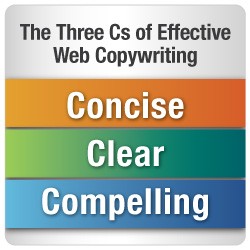Copywriting For the Web Part 3: How To Write to Your Audience


Now that we’ve examined the “three Cs” – be clear, concise, and compelling – it is easy to see where they come into play when writing web content. But good content also needs to be styled, in form and function.

Next week is Marathon Monday in Boston, which got me thinking about “marathon web projects.”What the Boston Marathon and marathon web projects have in common are that both can be painful, long and tedious. Where they differ is that running in the Boston Marathon can result in a feeling of deep accomplishment. Marathon web projects are…less satisfying.
I love a surprise! Only just don’t give it to me on a web site development project. I feel pretty safe assuming my clients would agree with this. For those of you who are not web development professionals and find yourself running a web project, I thought it would be useful to dispel five mistaken assumptions about the web development process. Each of the next five posts will address one of these assumptions:
Having been in the web design and development game for over 15 years, I’ve seen clients and prospects fall into a set of familiar traps when it comes to the process of creating a web site. Here are five tips for avoiding the pitfalls lurking in any web development project.
In our many Web engagements clients often question whether they need an outside writer on the project. The reason for rumination is usually either related to budget or whether internal resources have the time to get the job done. From experience I believe that hiring an outside writer is necessary and often mandatory. Here are five reasons to consider:
Notifications